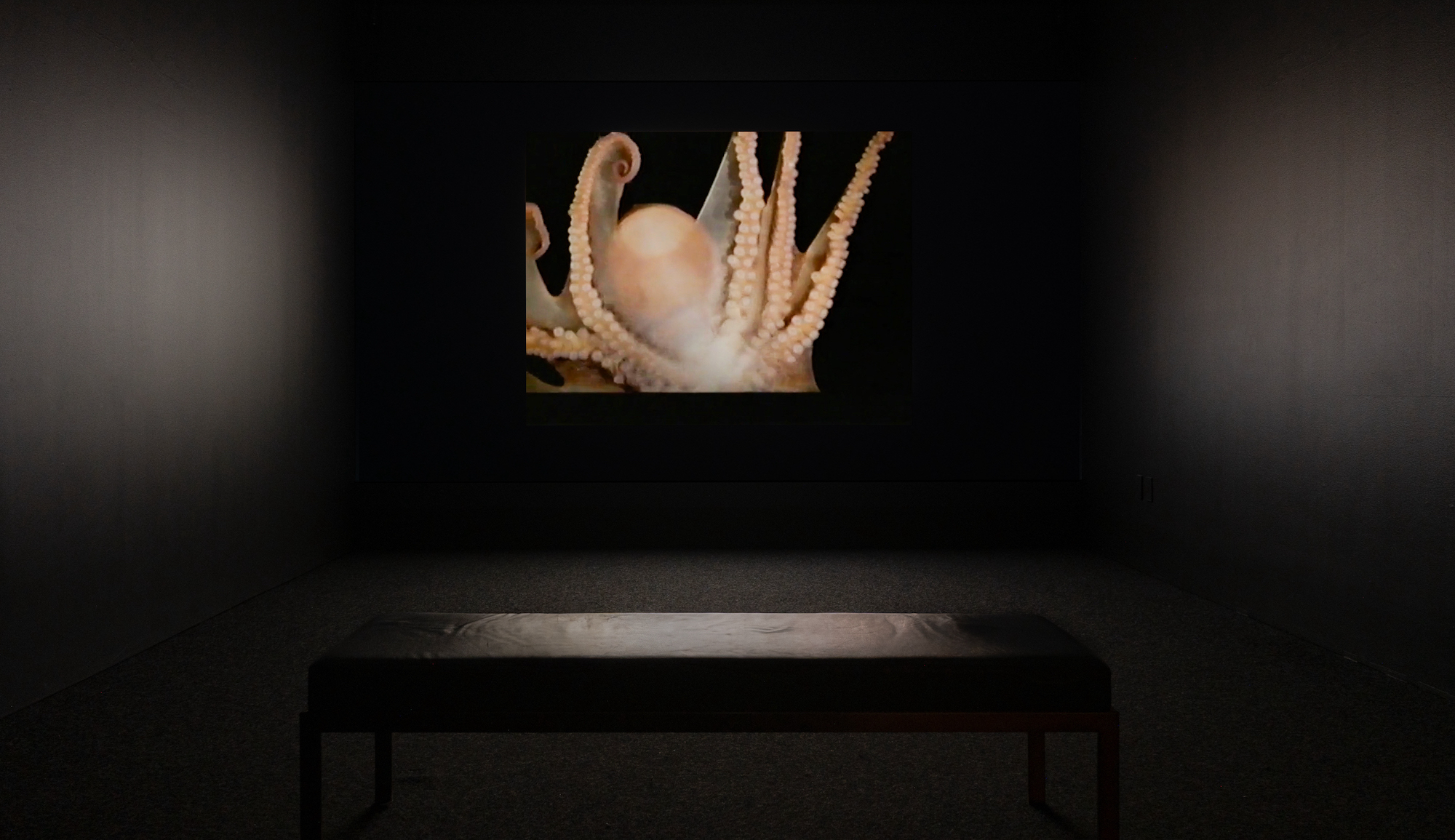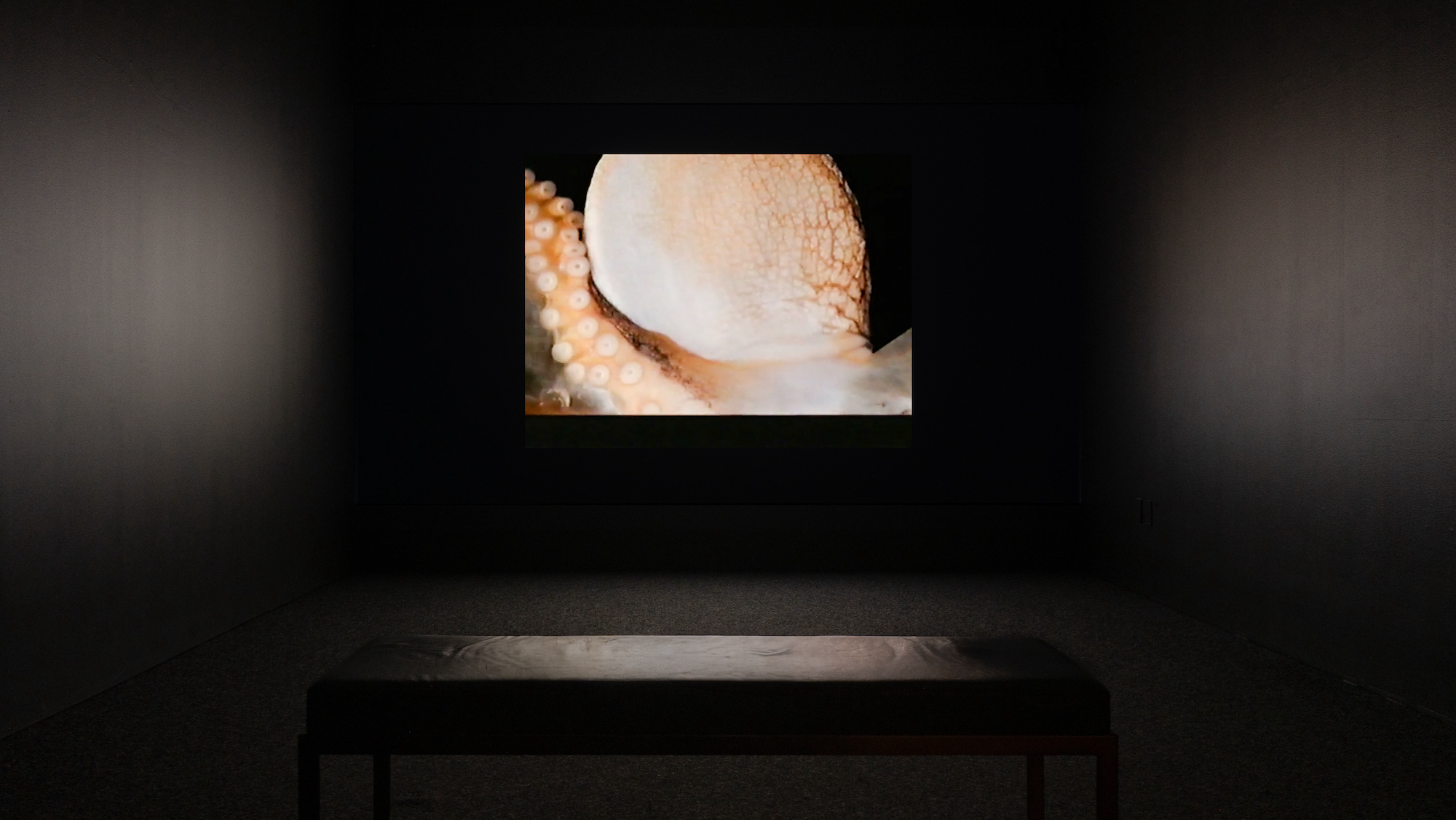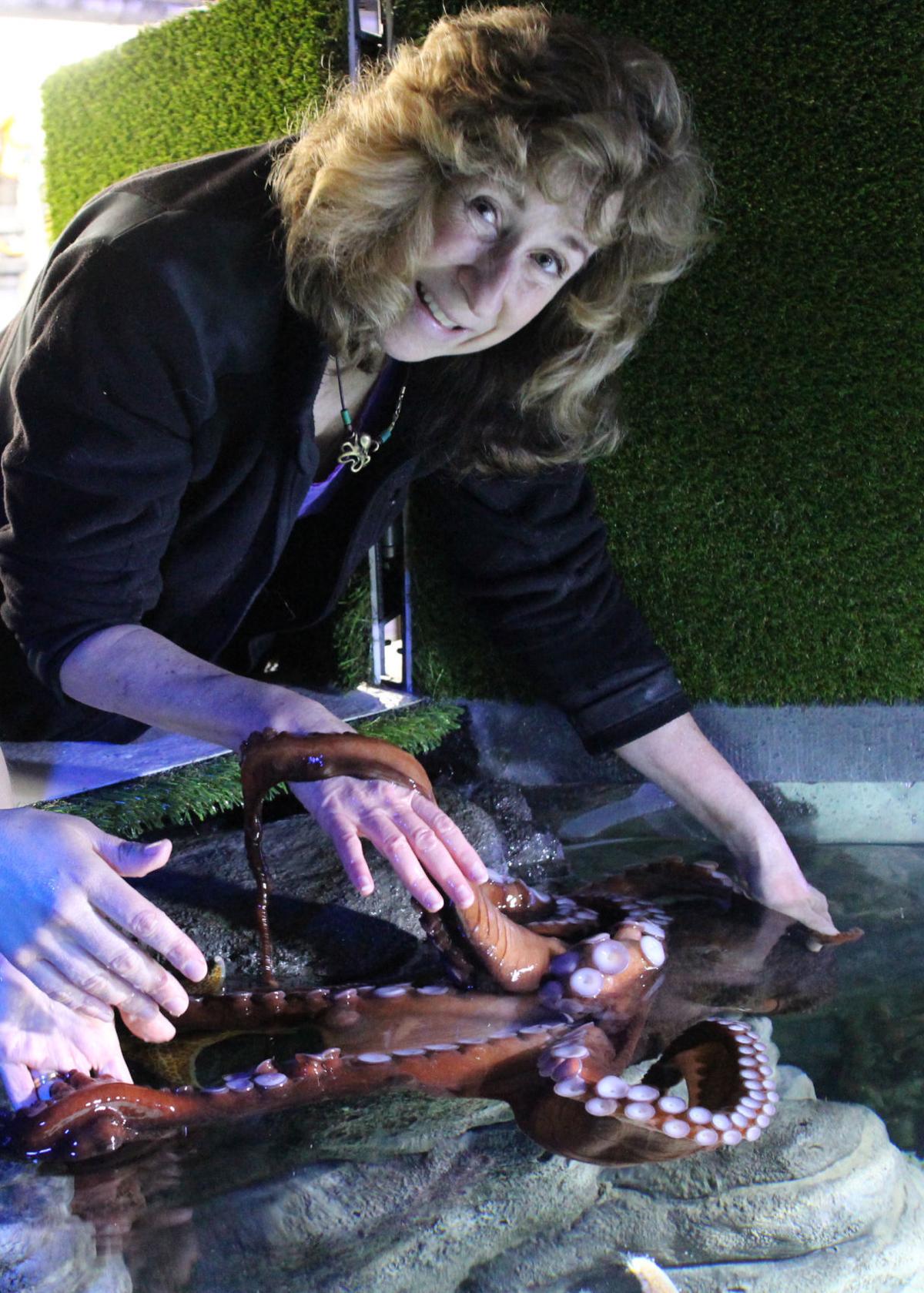
If the Sky Were Orange: Art in the Time of Climate Change
Part One – In Deep Water: Sy Montgomery on Amy Globus’s Electric Sheep
The grace and flexibility of the octopus is unrivaled in the natural world. Boneless and balletic, the animal can pour its nearly liquid body through the tiniest of openings, unfurling its eight arms like unspooling ribbons, its body floating in the water like a silk scarf.
In her digital video Electric Sheep, Amy Globus contains the octopus’ natural, wild fluidity inside a series of plexiglass boxes and tubes. As the animal navigates its human-constrained world, we listen to a song warped by the sounds of strange, percussive pings and radio static, reminding us of a spaceship adrift.
Something is terribly wrong here. The endless, eternal sea has been bound. Emmylou Harris sings Neil Young’s sweet and familiar “Wrecking Ball,” but her translucent voice is distorted. The octopus is still beautiful, the human voice still sweet. But in both, their wildness and wonder are diminished. The song now swells with a new kind of longing: “My life’s an open book / You read it on the radio / We’ve got nowhere to hide / We got nowhere to go.”
The video’s title, Electric Sheep, is an evocative reference to the 1968 dystopian sci-fi novel by American writer Philip K. Dick, Do Androids Dream of Electric Sheep? In the story’s post-apocalyptic world, polluted by radioactivity, humans long for connection with animals, but even pets are so rare some must make do with robots—including an electric, black-faced sheep of the title.
Such loss and longing is what we’re facing in our human-dominated world, where by 2050, a two degree Fahrenheit rise in ocean temperature will bleach corals, disrupt fish migrations, and decrease dissolved oxygen from an ocean that will then contain more plastic than fish. Like an octopus squeezing through a tube to transit from one square box to another, we will have nowhere to hide, nowhere else to go.
Note: Octopuses enjoy exploring small spaces. Aquarists often give their captive octopuses mazes like this to enrich their environment and keep them entertained.

About Amy Globus
During the early 2000s, Amy Globus’s video works and installations exploring the non-human animal realm, particularly octopi, garnered significant recognition. These captivating videos reflect Globus’s fascination with the juxtaposition of artificial and natural life by fusing the content of a nature documentary with a technological aesthetic characterized by a cool and detached sensibility. Globus is the co-founder and creative director of the award-winning brand design studio, Team. She lives with her family in Brooklyn, New York.
About Sy Montgomery

Naturalist and author Sy Montgomery has written 34 books in the hope of “revolutionizing the way we understand the rest of animate creation.” Whether tracking tigers off the Bay of Bengal (Spell of the Tiger, Houghton Mifflin, 1995) or scuba diving to commune with octopuses (National Book Award Finalist The Soul of an Octopus, Atria Books, 2016), Montgomery seeks to build empathy and compassion between human beings and our fellow animals.

